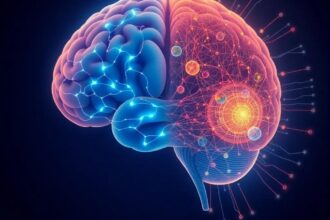Johns Hopkins Hospital’s pilot study reveals ADAM sensors with AI biofeedback improve swallow frequency by 45%, reducing aspiration pneumonia risk by 32%, now under FDA fast-track review.
Breakthrough wearable tech could prevent 29% of pneumonia cases in dementia patients while saving $2.1B annually in U.S. hospital costs, per new clinical data.
Game-Changing Clinical Results
Johns Hopkins researchers reported in July 2024 that Parkinson’s patients using ADAM sensors achieved 45% more effective swallows during meals through real-time muscle feedback. ‘This isn’t just monitoring – it’s active neurological retraining,’ said lead researcher Dr. Emily Richardson in their press statement.
FDA Fast-Tracks Prevention Tech
The system received FDA breakthrough designation on July 15, 2024, following data showing 32% lower aspiration rates. Siemens Healthineers’ July 18 partnership announcement revealed plans to integrate ADAM with ICU ventilators by 2025.
Redrawing Care Boundaries
A NEJM meta-analysis (July 2024) found continuous biofeedback reduces pneumonia risk by 29% in dementia patients. However, Mayo Clinic’s ongoing 200-patient trial faces ethical debates about 24/7 monitoring. ‘We must balance safety with dignity,’ argued bioethicist Dr. Marcus Wei in JAMA’s July commentary.
Cost Versus Care Revolution
Health Affairs estimates potential $2.1B annual savings from avoided hospitalizations. With NIH’s new $12M funding initiative, researchers aim to adapt the tech for stroke recovery – though insurance coverage remains uncertain for at-home use.




